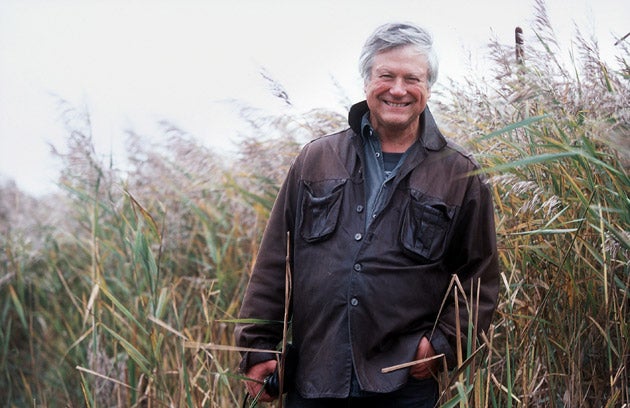An education in the life of the writer and naturalist, Richard Mabey
'I burst into tears over fractions'

Richard Mabey, 68, is the author of 'Food for Free', 'Nature Cure' and 'Flora Britannica', as well as an award- winning biography of naturalist Gilbert White. 'Wild Cooking' came out this month. A new version of his book on nightingales, 'Whistling in the Dark', is out next spring, as is 'A Brush With Nature', taken from his columns in BBC Wildlife. Starting on Monday, his R3 series, The Scientist and the Romantic, goes out at 11pm every evening next week.
I remember mostly disasters at Rothesay, the pre-prep school in Berkhamsted, Hertfordshire that is named after the grand Edwardian house in which it was situated. I was quite a timid child at this stage and began to have my first experience of psychosomatic symptoms: indigestion and dizzy spells. In those days, one was diagnosed as being "highly strung" – like a harp.
In one classroom there were two teachers and two classes facing in opposite directions. In my first year I once sat in the back row facing in the wrong direction and was subjected to an hour of fractions, bursting into tears at the incomprehensibility of it.
At Berkhamsted Prep I was more sociable and developed a vigorous outdoor gang life. We had a brilliant teacher of nature studies, Mrs Benson, who took us on daily walks on the commons. I remember first seeing a fly agaric toadstool, the red one that's always drawn in children's storybooks with elves sitting on it. It was a very encouraging school; I did a picture of the human body in wonderful genital detail and, instead of rebuking me, the teacher pinned the picture on the wall.
I passed the Common Entrance, which meant I could go up to Berkhamsted School (a minor public school, now re-named Collegiate). Most of the teaching there was very far from inspirational, but the science lessons were pretty good. I could do the theoretical stuff at school and, at home, I pursued the trade of amateur alchemist. You could buy chemicals such as mercury over the counter at Boots.
I started writing and won various prizes for essays. I read my first volume of [Victorian nature writer] Richard Jefferies and plagiarised him recklessly. I have just written the forward to a new edition of his Wildlife in a Southern County.
A young maths master started a madrigal choir doing Elizabethan choral music – with girls from the nearby girls' school. Being in a choir and learning to listen and respond to other people's voices was the single most important experience of my school life.
I got a distinction in my physics and chemistry A-levels but, at maths, I was no better than when I faced the wrong way at my first school; in the A-level, I only got an O-level grade. I didn't get into Cambridge but the wonderful maths teacher said, "Try my old Oxford college – I'll put in a good word." I got into St Catherine's with a long interview.
I adored Oxford, but it took me a while to settle in. I went up to study biochemistry, but I applied in my third week to change to philosophy, politics and economics. In the first biology experiment we were meant to extract the contents of our own stomachs with a tube. I never for a single second regretted changing to PPE. I got a second (a good second, I was told).
We had Iris Murdoch as a tutor for a while: very exciting. [Philosopher and professor] Isaiah Berlin had a course on Marx which became a big university event. There were 2,500 to 3,000 people present – a third of the student population, with people standing on tables for his heroic, electrifying performance.
Join our commenting forum
Join thought-provoking conversations, follow other Independent readers and see their replies
Comments